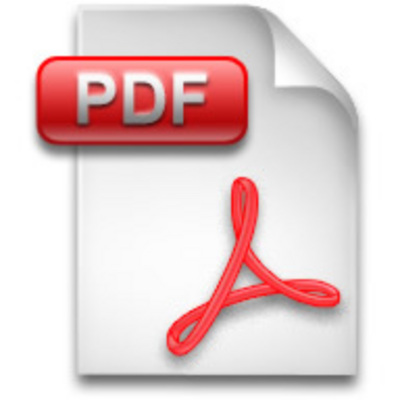Sample Pour-Over Will and Testament
Click the link below to download a PDF document of the sample document.
 |
Sample Pour-Over Will and Testament |
You will need a PDF viewer to open this document. Click the link below to download PDF viewing software.
Content on this site is for general information purposes, should not be relied upon as legal advice, and does not constitute a contract or an attorney client relationship.
Legal Note: The Documents here are provided for your information and that of your immediate family only. You are not permitted to copy any document provided to you. Each of these Documents provided are intended as general assistance in simple legal matters only. No document is intended to be used for any item, transaction, or other matter, where the total value of the item, transaction or matter is worth more than $ 5,000.00. You are not authorized to use any document for any transaction which is in excess of $ 5,000.00 in value or is not a simple matter. As a guideline to the meaning of simple, consider the following: if you can complete the document without any questions, it is likely a simple matter. However, if you need to ask any questions, you should consult with your Plan attorney. Do not speculate about completion of the blanks in this matter.
The information provided in the documents, and the instructions provided with each document are not intended to constitute legal advice. These documents are intended to assist consumers in protecting themselves in certain simple transactions, without incurring expensive attorneys fees. If you need legal advice, Plan Attorneys will be happy to provide a free legal consultation, at no cost, to you as a Plan member. Understand that if you contact a Plan Attorney, he/she may not advise you as to how to complete your documents. They may only be retained to prepare documents for you which they deem to be proper in your situation.
Certain documents can be completed with either a pen or a typewriter, unless indicated otherwise in the specific instructions. You should not make changes or alterations to any documents, once you have completed the document. You must complete a new document fully, even if you wish to make any changes, even a small change. If you make any changes to a document, you cannot be sure that the change conforms to legal requirements. For example, changes to a will, in some circumstances, may void the entire will, even if you intended to make the changes. Thus, it is a safer practice to make a new document, if you intend to make any changes.
If there are blanks which are not used or which contain no information, place an X, or a line through the blank. This ensures that no person can make unauthorized modifications to a document, by simply completing the blanks, and changing the entire crux of the document.
Certain documents may require a notary. Notaries are certified by each state, and can only operate in the states in which they are licensed to operate. An invalid notary may invalidate your document. Notaries serve the purpose of verifying that the signature of the person signing the document, is in fact, the person claiming to have signed the document. Certain institutions require a notary, even when state law does not. Be sure to check with the parties with whom you are dealing to see if they will require a notary. Banks often require notaries.
If you believe that you must record a document, you should consult with a Plan Attorney. No document provided here is intended for recording, and any such document must be prepared by a Plan Attorney. We have not included certain documents, despite repeated requests, because these documents require the skill and expertise of an attorney. These include trusts, deeds, Mortgages, Escrow Agreements and other documents. Always consult a Plan Attorney before drafting one of these documents on your own.

